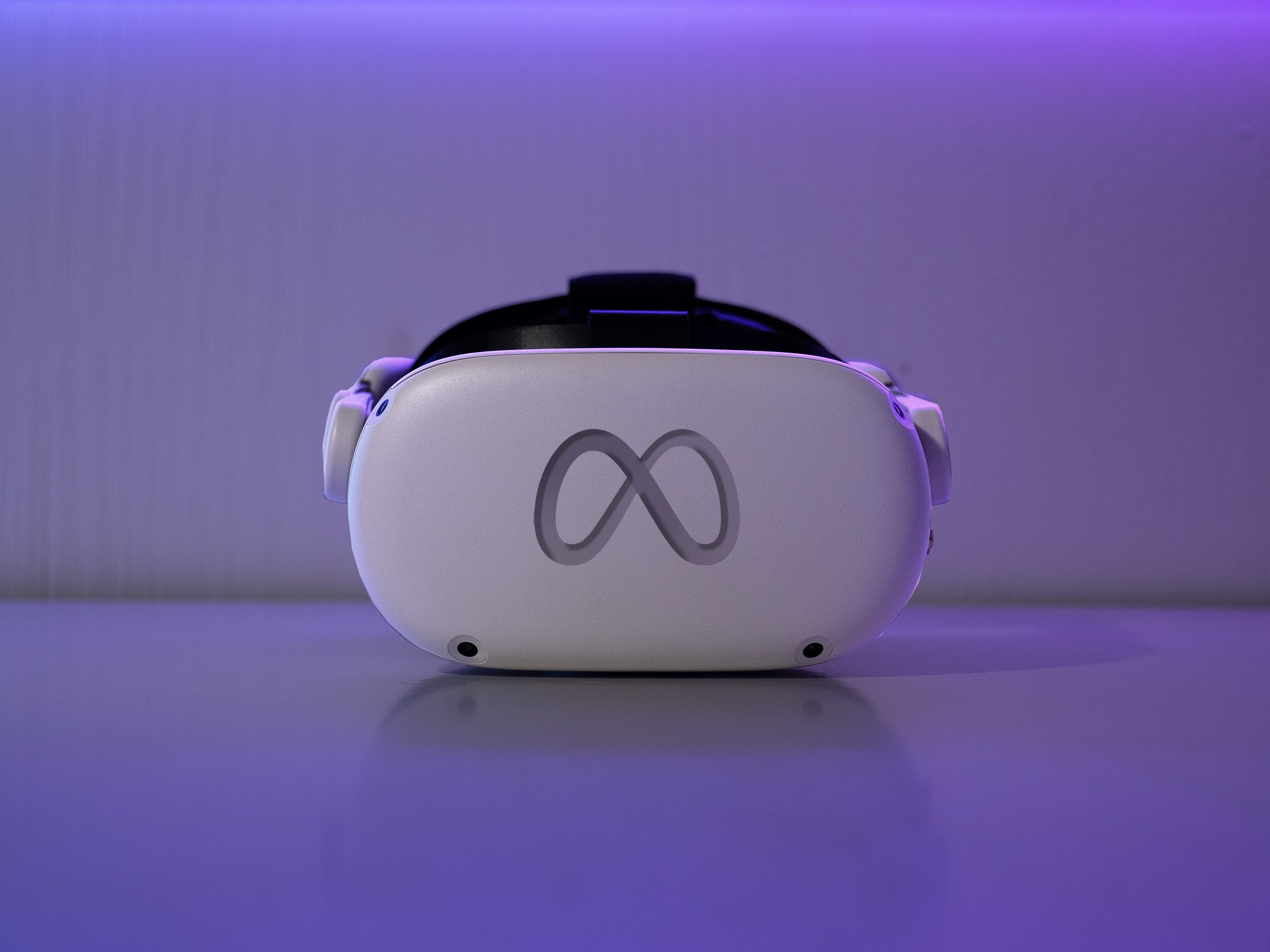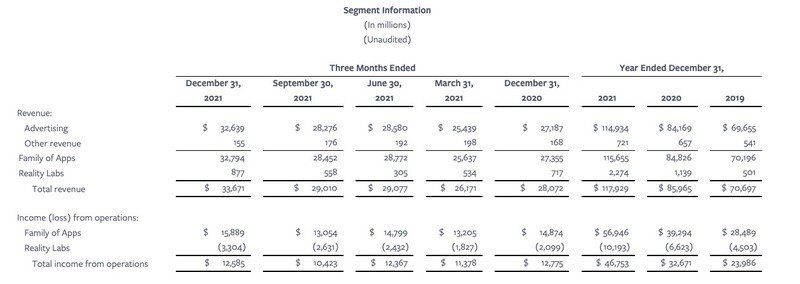Despite Quest 2 sales success, Meta lost $10.2 billion on VR/AR last year

What you need to know
- In its Q4 earnings report, Meta reported $33.6 billion in revenue over the past three months.
- Despite a 20% year-over-year growth, Facebook stocks have plummeted as a result of lower-than-expected growth.
- Facebook Reality Labs earned about 2.3 billion in 2021, but total income was consistently negative every quarter.
- Meta is reportedly pivoting to Reels to compete with TikTok, which has cut into its profits.
- Zuckerberg blamed iOS privacy changes and new European regulations for reduced user data capture, which cuts into profits.
Meta's Q4 2021 earnings report was the first to split up its app and advertising revenue with its Reality Labs hardware division for VR and AR. And based on this first report, we learned exactly how much money Meta is hemmoraging for its virtual reality and augmented reality efforts, despite the success of the Oculus Quest 2.
According to the report, Reality Labs — which encompasses Quest 2 sales and software sales — earned $534 million, $305 million, $558 million, and $877 million across the four quarters of 2021, totalling $2.3 billion. Evidently, sales grew significantly during Black Friday and the holiday season.
Despite that, actual Reality Labs revenue was a net negative all year, as it lost $1.8 billion, $2.4 billion, $2.6 billion, and $3.3 billion during those same quarters.
Increased sales likely corresponded with other increased costs. Meta has ramped up traditional advertising for its headset and popular games like Beat Saber; it has acquired developers like Supernatural and acquired upcoming exclusives like GTA: San Andreas; and R&D for upcoming VR/AR headsets will cut into profits too. Meta even announced today it would run a Quest 2 Super Bowl ad.

During the earnings call, Mark Zuckerberg said that the Oculus Store had generated $1 billion in revenue — though it wasn't clear if that was during 2021 or overall. Regardless, it confirms prior evidence that the Quest Store has been extremely profitable for developers, even if it isn't for Meta.
Zuckerberg also mentioned that they were "working towards release of a higher-end virtual reality headset later this year." This most likely refers to the Quest Pro, codenamed Project Cambria, a headset with revamped lenses, cameras for eye tracking and improved passthrough, redesigned controllers, and other upgrades.
He also mentioned their work on Project Nazare, Meta's AR glasses prototype, as well as their work on building "foundational hardware and software" for the Metaverse. He specifically said that the Metaverse will be accessible in "non-VR formats."
Be an expert in 5 minutes
Get the latest news from Android Central, your trusted companion in the world of Android

Outside of VR/AR losses, Meta's app- and ad-based revenue fell short of expected targets, which CNBC reports has led to a 20% dip in stock prices.
In its report and during the earnings call, Meta put much of the blame on Apple's shoulders. Its new iOS restrictions that allow users to opt out of providing data to apps have wreaked havoc on Meta. An executive on the call said that the "accuracy of our ads has decreased" and that determining the outcome of ad clicks has gotten harder as a result of these changes. During the Q&A, Meta attacked Apple for taking ad money from Google while leaving these policies in place for other companies.
Otherwise, Meta blamed its lower earnings on its pivot to compete with TikTok. It has pushed its new Instagram Reels as a way to appeal to a younger demographic, but these videos don't offer much monetizing opportunity compared to previous Facebook videos. As a result, Meta will likely continue to see reduced growth in the short term in order to build long-term support with Gen Z.

Michael is Android Central's resident expert on wearables and fitness. Before joining Android Central, he freelanced for years at Techradar, Wareable, Windows Central, and Digital Trends. Channeling his love of running, he established himself as an expert on fitness watches, testing and reviewing models from Garmin, Fitbit, Samsung, Apple, COROS, Polar, Amazfit, Suunto, and more.
